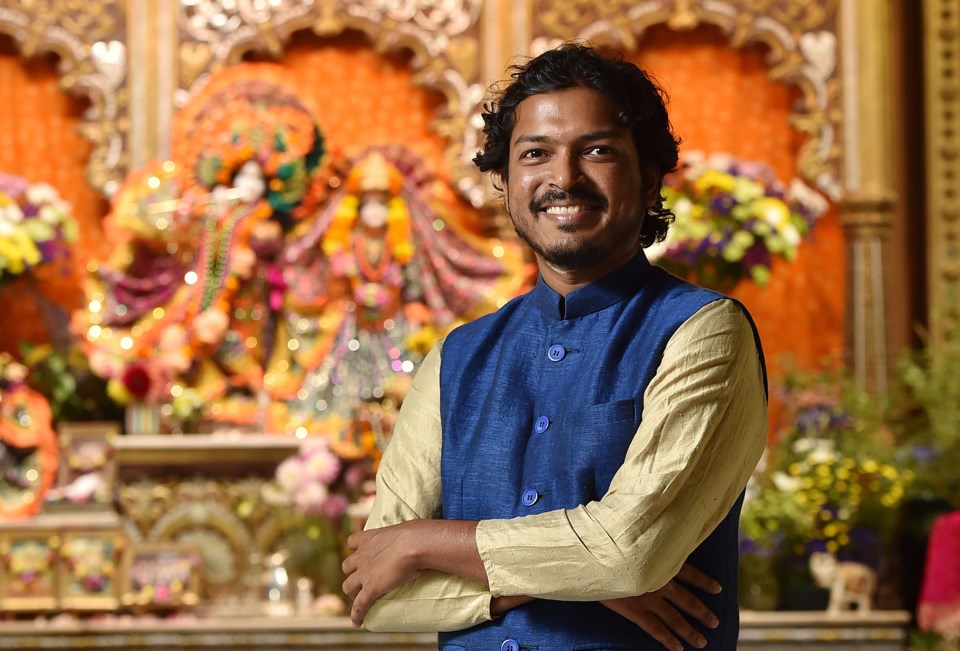How do you claim space in a sector that has been dominated and defined by white European settler culture for decades?
It’s a pressing question when you’re an artist of colour, determined to break through into a mainstream theatre world that doesn’t seem to have space for you, and it’s a question that has risen in volume and frequency in the Vancouver theatre scene over the last several years.
We’ve heard it when companies cast white actors to play characters of colour, or when they try their hand at non-traditional (sometimes called colour-blind) casting. For a question this pressing, no easy answers have emerged.
A tipping point of sorts did come in 2015, when more than 150 members of the Vancouver theatre community issued an open letter to the board of directors of the Jessie Richardson Theatre Awards, taking them to task for an apparent lack of diversity among Jessie nominees and recipients. The Jessies responded by inviting community consultation, subsequently instituting a diversity mandate and introducing the Vancouver Now Representation and Inclusion Award.
Rohit Chokhani was a signatory on that 2015 open letter. By that point, the dynamic cultural leader had been in Canada for five years, producing work for a long list of theatre companies, but not yet directing – and not because he lacked the skill.
“When I came [to Canada], I was as confident as I am right now as a director, but there was no space,” says Chokhani in a recent interview in a West End coffee shop. “There was no space for people to give me the kind of opportunity that I wanted, and I don’t like to wait around for things.”
Chokhani says his work has always been about more than himself; it’s about claiming space for his community. In this way, he considers himself a second-generation theatre artist, building on the work of trailblazing theatre artists such as Margo Kane from the Talking Stick Festival and Gateway Theatre’s Jovanni Sy. “Their work allowed a little bit of space for folk like me to enter, and now we are claiming more and more because of the work their generation did,” he says.
Since arriving from India (by way of the USA) in 2010, Chokhani has been an artistic producer for the not-for-profit South Asian Arts organization and growing Diwali Fest, an artistic associate at the Bard on the Beach Shakespeare festival, and producer-in-residence at the National Arts Centre in Ottawa, leveraging his positions to claim more and more space for South Asian theatre artists in and beyond Vancouver.
This year, Chokhani kicked that effort up a couple of notches by launching Project SAT, an initiative aimed at creating a network for developing, touring, producing and presenting national and international South Asian theatre projects in Canada. Meanwhile, he’ll make his long-awaited directorial debut next week at the helm of Bombay Black, as part of the 2017 Vancouver Fringe Festival’s Dramatic Works series.
All of this comes on the heels of his Jessie Award win in June for Significant Artistic Achievement (Large Theatre) for presenting Touchstone Theatre’s hard-hitting sex slavery study Brothel #9 (all while curating The Cultch’s upcoming Diwali programming, too).
With Project SAT – SAT being both an acronym for South Asian Theatre and the Hindi word for truth and the inner essence – the primary goal is elevating South Asian artists. “There’s only so much we can do as independent producers, because there are only a few of us who have actually claimed that space, so the quality is there but the quantity isn’t,” Chokhani says. His goals include aiding in the development of new work and building a globe-spanning touring network. “In order for the quantity to happen, we need to create more things – and of course, we can produce things here, but they need to go elsewhere in Canada. They need to go globally.”
"This is continuing to claim the space for South Asian artists, but this does not mean just seeing more South Asians on Eurocentric stages."
Project SAT launched in July with a series of culturally specific workshops focused on grant writing and pitching project ideas to presenters and producers, like Chokhani. Translators for Punjabi, Hindi and ASL participants are available upon request. Upcoming workshops will focus on producing, playwriting, dramaturgy and Natya Shastra, an ancient South Asian text on the performing arts.
The aim of Project SAT isn’t to teach people of colour how to adapt their voices to the mainstream, says Chokhani, nor is it to give them tools to contort their stories so that they’re palatable according to European standards.
“This is continuing to claim the space for South Asian artists, but this does not mean just seeing more South Asians on Eurocentric stages,” he explains. “This doesn’t mean seeing more South Asian stories done in a Eurocentric way. This actually means claiming a space to train individuals in their own ancestral way of doing things, and there are many different ancestral traditions in South Asia.”

Meanwhile, buzz has been building for Bombay Black. Chokhani is a Fringe veteran – he produced Siddhartha: A Journey Home and 2015’s Pick of the Fringe two-hander Mrs. Singh and Me – and for his first go in the director’s chair, he chose Anosh Irani’s searingly complex, award-winning drama – which is set in present-day India and follows Padma, an iron-willed mother; her daughter Apsara, who performs erotic dances for men; and Kamal, a blind stranger with a shattering secret – because of how well it captures the searing complexities of Mumbai, the city of his birth. “When you go to India, child marriage, classicism, casteism, uneducated mentality versus educated mentality, urbanism versus ruralism, all of that is thrown in your face, whether you’re going for the first time or whether you’re going every year like me, you’re going to have to face that, and that’s what Bombay Black does.”
Irani is an Indo-Canadian playwright and novelist, and Bombay Black has been performed numerous times throughout Canada and India; Chokhani notes that this upcoming Fringe run will be the first time in Canada that the play will be directed by a Mumbai-born director of Indian descent.
Bombay Black’s cast is comprised of established stand-out actors: Jessie Award-nominees Nimet Kanji and Munish Sharma, who previously shared the stage in Mrs. Singh and Me, and Leo Award-winner Agam Darshi (Sanctuary, Played), who premiered her one-woman show, Burning Point, at the Railtown Actors Studio earlier this year.
At the time of our interview, Chokhani and his collaborators were still considering the techniques they could employ to thrust audiences into the whirlwind that is modern-day Mumbai, and also compel them to consider what it’s like to maneuver through the world as a blind person. (He intends to remount the play in a few years, when time and budget permits him to conduct a global search and cast a blind South Asian actor in the role of Kamal).
Chokhani has respect for Irani because “he’s written a play about male gazing, but then he’s taken the eyes away of the person who is potentially male gazing. He’s also given the audience an ability to male gaze; but I am taking it further and not letting the audience experience the male gaze all the time, so that itself is pretty loaded.”
• Information about Project SAT’s upcoming workshops can be found at projectsat.ca. Bombay Black runs Sept. 7-16 at the Vancity Culture Lab. Tickets at tickets.vancouverfringe.ca.


